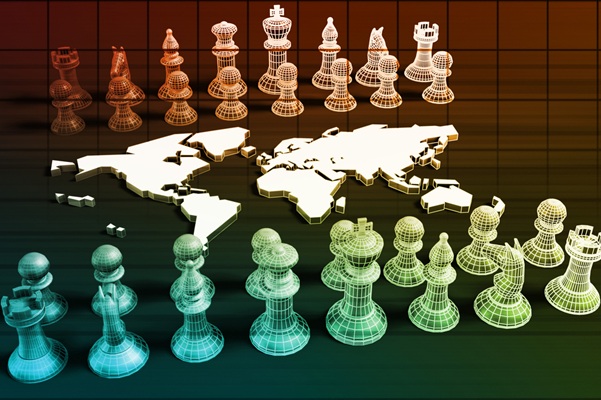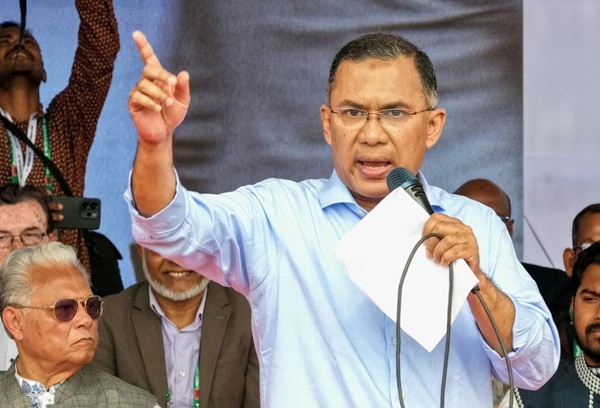.png)

Lt Gen Syed Ata Hasnain is a former Commander of India’s Kashmir Corps and Chancellor of the Central University of Kashmir.
September 23, 2025 at 9:55 AM IST
In the wake of the Pakistan-Saudi Arabia defence pact signed on September 17, 2025, what had until recently looked like a familiar pattern of Pakistani diplomatic survival and outreach appears to be shifting into something more structured and ambitious. Beneath the mutual defence language runs a mix of insecurity, unease, and fresh opportunity that is offering Pakistan a boost in its regional standing. Saudi Arabia’s own anxiety about its security environment is a major driver of this change. The war in Gaza, Israel’s strikes on Iran and then Qatar, and the visible agitation in the Gulf over suspect American reliability have together unsettled Riyadh’s sense of strategic certainty. It is no accident that when Pakistan and Saudi Arabia inked their pact, many analysts saw it as Saudi Arabia diversifying its military relationships, hedging against what it increasingly senses may be lapses or delays in US guarantees.
Pakistan, for its part, seems to be capitalising on this Saudi unease. Its decades-old closeness with China remains strong, even as Islamabad absently warms up its ties to Russia, all the while patching up fences with neighbours like Iran and Afghanistan. Tehran-Riyadh tensions are still present, but Iranian Foreign Minister Araghchi’s telephonic conversation with Saudi Arabia’s Faisal bin Farhan, after the signing of the pact, underlines that Tehran is watching closely and ready to recalibrate rather than merely criticize.
There is also speculation in media reports that Pakistan’s nuclear deterrent may now be quietly extended as an umbrella for Saudi defence; that was supposed to be the original arrangement when the Saudis bankrolled the programme. Pakistani Defence Minister Khawaja Mohammad Asif was reported saying Pakistan’s nuclear programme “will be made available” to Saudi Arabia under the pact if required. Whether that means direct deployment, sharing of missile platforms, or a more symbolic assurance remains opaque. The grey zone here helps Pakistan.
Given Saudi Arabia’s move, one must ask whether other Gulf States will follow. The UAE, long a partner of Pakistan in trade and investment, has watched with interest. While there is no public indication yet that UAE seeks a formal mutual defence pact like the one with Saudi Arabia, the logic is becoming compelling. If Riyadh’s fears over external threats and about US reliability are widely shared, Gulf monarchies outside of Saudi may begin to seek similar arrangements. For Qatar, already shaken by being directly struck and by broader insecurity in the region, the idea of external military guarantees may seem less alarming and more necessary. Of course, in its case it becomes much more complicated because of the large-scale presence of US troops on its soil.
Iran’s response has been one of watchful engagement. Tehran, which has historically seen its rivalry with Saudi Arabia in ideological, sectarian and strategic terms, cannot dismiss a defence pact that could shift regional deterrence calculations. Iran has initiated dialogue with Saudi counterparts on the broader implications of the Pakistan deal and sought reassurances. At the same time, Tehran is acutely aware that many in Washington see the China-brokered rapprochement between Iran and Saudi Arabia as a barometer of America’s waning influence in the region. China’s diplomatic efforts, though much praised, seem naïvely optimistic in assuming that long-standing sectarian fault lines can be rapidly bridged simply via summit diplomacy. The Saudi-Iran de-escalation frameworks have made progress in some areas, especially economic and diplomatic exchanges, but trust on hard security cooperation remains thin and cautious.
This shifting landscape suggests that Pakistan’s geopolitical status has indeed taken an upward curve in recent months. With each rapprochement—whether with Iran, Afghanistan, Russia, or renewed signals from Washington—Pakistan is being recast from a pariah or peripheral actor into a central node in a recalibrated Gulf and West Asian order. For Islamabad, this serves strategic ends. It dilutes Pakistan’s overdependence on any single patron, increases its bargaining power in aid, military hardware, and diplomacy, and may allow it to punch above its weight in regional crises.
India does not hyphenate itself with Islamabad in South Asia or the Middle East; its role in the Gulf rests on far deeper economic and human linkages. Still, Pakistan’s new alignments are a factor India must weigh in its wider regional strategy for its adaptation to the evolving situation. The emergence of Gulf States seeking external military guarantees, or publicly signalling interest in alliances like the Saudi-Pakistan pact, means that India’s traditional and very successful diplomatic inroads in the Gulf may face fresh competition. Our strong relationship with Saudi Arabia, built on energy, investments, and large expatriate communities, will now be one among several strategic vectors for Riyadh. India must ensure that its alignment is reinforced by deeper trust in security affairs, not just economics. It’s a fresh area for the Indian security community although it is very much equal to meet that challenge.
At the same time, India should monitor carefully how far Pakistan’s aspirations translate into concrete capabilities. Having an alliance or pact is one thing; being able to sustain hardware, deploy forces, coordinate command-and-control, and assume real risk is another. Pakistan’s economic vulnerabilities remain real, its political stability still delicate, and its ability to project force in a confrontation, especially across multiple fronts, is limited relative to its neighbours; that is a reality.
Another dimension is the nuclear shadow. If Saudi Arabia is indeed under some kind of implicit nuclear umbrella from Pakistan, even if unofficially or informally, this reshapes regional deterrence logic. It could push Gulf countries, flush with revenues from oil and global capital, to explore more formal defence guarantees, seek advanced missile or missile-defence systems, or even quietly upgrade strategic relationships with nuclear powers. Rather than competing with Pakistan in offering nuclear cover, India’s priority is to sustain a doctrine of restraint and assured retaliation that leaves no doubt about its capacity to respond decisively if provoked.
The influence of China looms large throughout. Beijing has been promoting a narrative of pan-Islamic unity, or at least stability, via its mediated Saudi-Iran detente. Given the Gulf’s persistent fears — Israeli military action, the risk of conflict spilling across borders, and dependence on outside powers — these agreements will inevitably be strained by pressures that diplomacy alone cannot contain. China’s understanding of sectarianism, its ability to read Gulf domestic politics, and its willingness to accept risk, are all being tested in real time. If China’s mediation fails to anticipate or accommodate deeply rooted security fears (be they Sunni-Shia, or otherwise), its efforts would actually be meaningless.
So what might we expect next? It is likely more Gulf States will quietly explore external defence arrangements, either with Pakistan, Turkey, or states with credible deterrent capacity. The incentives are visible. If nations feel that their core security guarantee is shaky, in crisis situations, they obviously look for stronger anchors and straws to clutch at. We may even see multilateral security forums increasingly being proposed among Muslim countries, not just for counterterrorism or political unity, but for formal mutual defence, or at least shared early warning and missile defence systems. After almost half a century, Arab nations are feeling collectively insecure due to Israel’s unpredictability and increasingly that of the US. None of Trump’s Abraham Accords kind of approach seems to be on the cards.
India, then, sits at a juncture. It must continue nurturing its Gulf ties not merely via commerce and culture but through trusted security guarantees and visible contributions — military visits, exchanges and training, increased naval calls, intelligence and diplomatic outreach. Lots of war gaming is called for examining scenarios which till today looked alien and far away. In diplomacy, perception is powerful; and for now, Pakistan is managing perception optimally to punch above its weight. Knowing past trends this could be momentary and not something permanent, especially because of Pakistan’s propensity to allow its internal dynamics to many times interfere with its security. The Indian Government has carefully built and nurtured its relationship with the Middle East countries. That achievement will stand in good stead while moving to meet fresh challenges. India must also work on ensuring that our diaspora is well sensitised and it supports the security needs of the host countries to the limits of acceptance.



